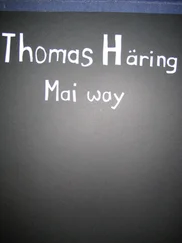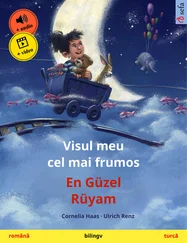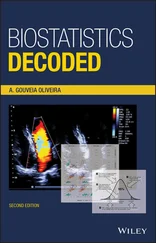Mai Jia - Decoded
Здесь есть возможность читать онлайн «Mai Jia - Decoded» весь текст электронной книги совершенно бесплатно (целиком полную версию без сокращений). В некоторых случаях можно слушать аудио, скачать через торрент в формате fb2 и присутствует краткое содержание. Год выпуска: 2014, Издательство: Allen Lane, Жанр: Современная проза, на английском языке. Описание произведения, (предисловие) а так же отзывы посетителей доступны на портале библиотеки ЛибКат.
- Название:Decoded
- Автор:
- Издательство:Allen Lane
- Жанр:
- Год:2014
- ISBN:нет данных
- Рейтинг книги:3 / 5. Голосов: 1
-
Избранное:Добавить в избранное
- Отзывы:
-
Ваша оценка:
- 60
- 1
- 2
- 3
- 4
- 5
Decoded: краткое содержание, описание и аннотация
Предлагаем к чтению аннотацию, описание, краткое содержание или предисловие (зависит от того, что написал сам автор книги «Decoded»). Если вы не нашли необходимую информацию о книге — напишите в комментариях, мы постараемся отыскать её.
Decoded — читать онлайн бесплатно полную книгу (весь текст) целиком
Ниже представлен текст книги, разбитый по страницам. Система сохранения места последней прочитанной страницы, позволяет с удобством читать онлайн бесплатно книгу «Decoded», без необходимости каждый раз заново искать на чём Вы остановились. Поставьте закладку, и сможете в любой момент перейти на страницу, на которой закончили чтение.
Интервал:
Закладка:
Of course, it was very difficult to set yourself free from him, but the means of doing so was extremely simple. At the start of every term, in the very first class, Liseiwicz would begin by writing a tricky equation in the top right-hand corner of the blackboard. Whenever someone worked out the answer, he would be given 100 per cent as his grade, and for the rest of the term he would only have to attend class if he wished to do so. You could say that you had set yourself free for the rest of that term. Once that had happened, he would write a new equation in the same place on the blackboard and wait for a second person to get the answer right. If you solved three equations in a row, he would set a new problem for you alone, which would function as your graduation thesis. If you solved that too, whenever it happened, even if you had only attended the university for a couple of days, you would graduate with top marks, thereby completing your studies. Of course, in the nearly ten years that he had been teaching by then, there had never been anyone who had achieved anything close — even being able to solve one or two of his equations was a remarkable achievement. [To be continued]
Jinzhen was now sitting in Liseiwicz’s class, and because he was so short (being still only sixteen), he sat in the very front row. He could see the sharp flash and sparkle of Jan Liseiwicz’s pale blue eyes much more clearly than any of his fellows. Liseiwicz was a tall man, and standing by the teacher’s podium, he seemed even taller. His eyes were fixed on the very back row of seats. Jinzhen felt the occasional fall of drops of spittle when the professor became excited and the sudden exhalation of breath when he raised his voice. He talked about these dry, abstract mathematical notations in a voice filled with intense emotion. Sometimes he waved his arms and shouted; sometimes he walked slowly up and down, reciting. Liseiwicz, when he stood in front of the teacher’s podium, seemed like a poet, or maybe like a general. At the end of the class, he walked out without a further word. However, on this occasion, just as he was stomping out, Jan Liseiwicz’s gaze happened to fall on the thin young man seated in the front row. He had his head bent over the sheet of paper where he was working out a calculation. He seemed entirely intent upon his work, like a student in an exam hall. Two days later, Liseiwicz held his second class. When he took his place at the podium, he asked a general question: ‘Is there someone here called Jinzhen? If so, could you please raise your hand?’
Liseiwicz realized that the student who raised his hand was the young man in the front row that he had noticed when he left after his first class. He waved the couple of sheets of paper that he was holding in his hand, and asked, ‘Did you put these under my door?’Jinzhen nodded.
Liseiwicz said, ‘Let me tell you, this term you don’t need to attend class.’
There was a sudden uproar.
Liseiwicz seemed to be enjoying something, for he waited for the hubbub to subside with a smile on his face. Once everyone was quiet again, he wrote the equation out on the blackboard again — not in the top right-hand corner this time, but on the top left-hand side — and then he said, ‘Let us have a look at how Jinzhen solved this problem. This isn’t an extra-curricular novelty. His solution is going to be the subject of our class today.’
He began by writing out Jinzhen’s answer on the board in full and explained it from start to finish. Then he used different methods to produce three alternative solutions, so that those sitting in class felt that they were learning something through the comparison, tasting the strange joy of reaching the same goal by travelling different routes. The topic of this new class was developed step-by-step as he explained each method. When he had finished, he wrote a new question at the top right-hand corner of the blackboard and said: ‘I would be really pleased if someone can answer this before the beginning of the next class. That is the way to go: I give you a question in one class and you answer it in the next.’
That was what he said, but Liseiwicz was well aware that the chances of that happening were vanishingly small. If you were going to express it mathematically, you would need to use a very small fraction of a per cent, and even then you would be rounding the number up. Calculation often proves a slipshod method of determining the future — it shows the possible as being impossible. People often do not work as tidily as calculations: they can make the impossible possible; they can turn earth into heaven. That means that in actual fact there is no great gulf between heaven and earth: one fraction more and earth becomes heaven, one fraction less and heaven will change into earth. Liseiwicz really had no idea that this silent and impassive boy would be someone who could confuse him as to the nature of what he was looking at — having decided that it was earth, he could come up with a result demonstrating that in fact it was heaven. In other words Jinzhen solved the second problem that Professor Liseiwicz set him right away!
This problem having been solved, of course a new one had to be set. When Liseiwicz wrote this third question up on the top right-hand corner of the blackboard, he turned round and rather than speaking to the class as a whole, he directed his comments to Jinzhen alone: ‘If you can answer this problem too, then I am going to set you your personal question.’ He was talking about the question that would be the basis of his graduation thesis.
Jinzhen went to three of Professor Liseiwicz’s classes in total, lasting just over a week.
In the case of this third question, Jinzhen was not able to solve it as quickly as the previous two, so when the next class came around, he did not yet have a solution to offer. When Professor Liseiwicz finished the fourth class of that term, he stepped down from the teacher’s podium and spoke to Jinzhen: ‘I have already thought of the question for your graduation thesis. You can come and pick it up whenever you finish the previous one.’ Having said that, he walked out.
After he married, Jan Liseiwicz rented a house in Sanyuan Lane, just near the university. That was officially where he lived, but in fact he still spent a lot of time in the rooms he had occupied when he was a bachelor, living in faculty accommodation. His set was up on the third floor, a suite of rooms with a bathroom attached. He would read there, or do research — it was his library-cum-office. That afternoon, having had his siesta, Professor Liseiwicz was listening to the radio. The clumping sound of feet coming upstairs interrupted his listening. The heavy footsteps stopped right by his door, but instead of being followed by the sound of a knock, there was a susurrating noise, like a snake moving through dry leaves, as something was pushed under the door. It was a couple of sheets of paper. Liseiwicz went over and picked them up, recognizing immediately a familiar handwriting: Jinzhen. He flipped through the pages until he got to the answer: it was correct. As if he had just been flicked by a whip, he wanted to throw open the door and shout for Jinzhen to come back. However, when he got as far as the door, he hesitated for a moment and then went back to sit on the sofa. He began looking at the first page of calculations. When he had read the whole thing through carefully, Liseiwicz felt the same impulse that had propelled him towards the door. This time he rushed to the window, from which he could see Jinzhen walking slowly away. Throwing open the window, Liseiwicz bellowed at the retreating back, far in the distance. Jinzhen turned round, to discover that the foreign professor was pointing at him and yelling to come upstairs.
Jinzhen sat down opposite the foreign professor.
Читать дальшеИнтервал:
Закладка:
Похожие книги на «Decoded»
Представляем Вашему вниманию похожие книги на «Decoded» списком для выбора. Мы отобрали схожую по названию и смыслу литературу в надежде предоставить читателям больше вариантов отыскать новые, интересные, ещё непрочитанные произведения.
Обсуждение, отзывы о книге «Decoded» и просто собственные мнения читателей. Оставьте ваши комментарии, напишите, что Вы думаете о произведении, его смысле или главных героях. Укажите что конкретно понравилось, а что нет, и почему Вы так считаете.












